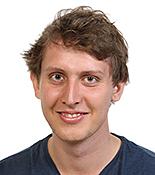
Constantin Ahlmann-Eltze
EMBL Heidelberg
Germany
EMBO Practical Course
Biological and biomedical research is increasingly driven by assays that measure multiple ‘omics data types (“multi-omics”), at single cell resolution, and/or with spatial resolution: transcriptome, proteome, genomic variants, epigenetic marks, metabolome, functional assays, imaging.
Joint mathematical-computational modeling, mechanistic and integrated statistical analysis of such data is an urgent need – one of the major analytical challenges scientists face today. How to discover the important underlying patterns, categories or trends, and to arrive at statistically robust conclusions using explainable models of reasoning?
The course’s core objective is to convey conceptual and mathematical foundations that underpin existing and emerging integrative multimodal data strategies and practical trade-offs between various methods. It will give participants an overview of the state-of-the-art methods. In practical sessions using real world examples, participants will gain familiarity with software implementations, practical aspects of quality assessment of inputs, outputs and pitfalls, method performance assessments, tuning and model fit interpretation, and relevant open science practices.
The course will cover methods such as multi table ordination and dimensionality reduction, including the popular Multi-Omics Factor Analysis (MOFA) method developed by the organizers.
This course is aimed at PhD students and post-docs in computational biology aiming to improve their skills in multi-omics data integration methodologies. Experience with R and/or Python and willingness to work with both is a prerequisite for this course.
The course will provide researchers with an overview and the theoretical foundations of state-of-the-art methods for multi-modal integration, with a focus on omics data. In practical sessions on relevant real-world examples from single-cell and bulk multi-omics studies, participants will gain familiarity with software implementations and learn about practical aspects, including quality assessment of inputs and outputs, method performance assessment, choice of tuning parameters, interpretation of the model fit and potential pitfalls.
“An absolutely fantastic course! I was introduced to new techniques I can apply to my data and to people with similar projects and challenges. There is a free and friendly atmosphere all throughout the course, which encourages discussion and further understanding of the techniques you apply. Talks are given by experts in the techniques, and the practical aspects of the course are great to apply the theory with experts nearby to help. I would recommend this course to everyone with an interest in multi-omic integration!” – Annabel May, MRC-LMB, Cambridge, UK
“An amazing week filled with exchange of challenges and ideas. Learned a lot of tips and tricks, and got to know an inspiring group of people. Thank you EMBL!” – Sivarajan Karunanithi, Institute for Molecular Biology gGmbH, Mainz, Germany
This course has a recommendation rate of 100% by previous attendees.

EMBL Heidelberg
Germany
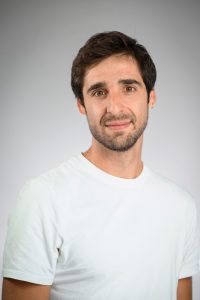
ALTOS Labs
UK
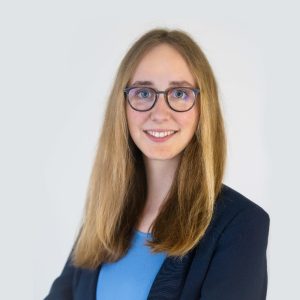
Heidelberg University
Germany
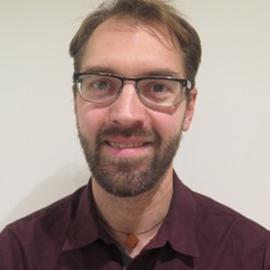
Goethe-University Frankfurt
& German Cancer Research Center (DKFZ)
Germany

EMBL Heidelberg
Germany
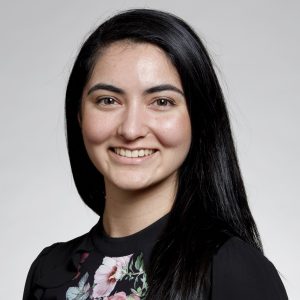
University of Sydney
Australia

German Cancer Research Center (DKFZ)
Germany
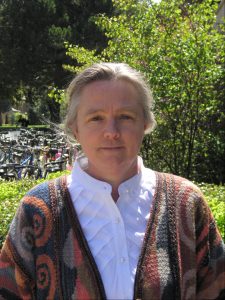
Stanford University
USA
(virtual)
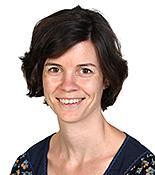
EMBL Heidelberg
Germany

EMBL Heidelberg & German
Cancer Research Center (DKFZ)
Germany

The University of Melbourne
Australia
(virtual)

University Hospital Heidelberg
Germany
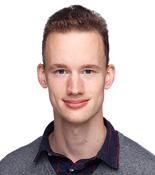
EMBL Heidelberg
Germany
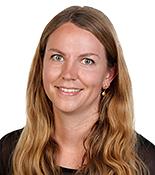
EMBL Heidelberg
Germany
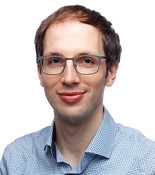
EMBL Heidelberg & German
Cancer Research Center (DKFZ)
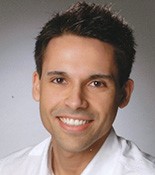
EMBL Heidelberg &
Dietrich Group
Germany
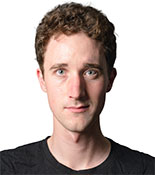
EMBL Heidelberg & German
Cancer Research Center (DKFZ)
Germany
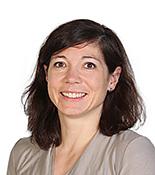
EMBL Heidelberg
Germany
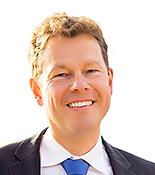
EMBL Heidelberg
Germany
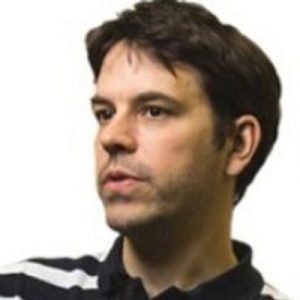
German Cancer Research Center (DKFZ)
Germany
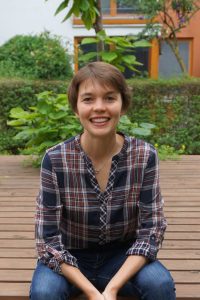
Heidelberg University
Germany
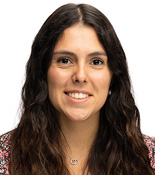
Course and Conference Officer
EMBL Heidelberg
Germany
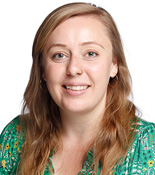
Scientific Training Officer
EMBL Heidelberg
Germany
Are you on social media? Post using #EMBOMultiOmics and don’t forget to tag @EMBLEvents
| Time (Europe/Berlin) | Speakers | Location |
|---|---|---|
| 08:00 – 09:00 | On-boarding session and Q&A regarding software installation | Virtual |
| Time (Europe/Berlin) | Speakers | Location |
|---|---|---|
| 08:40 – 09:00 | Bus from ISG Hotel to EMBL | Hotel Entrance |
| 08:50 – 09:15 | Registration | Courtyard Room |
| 09:15 – 09:45 | Welcome and safety instructions Wolfgang Huber – EMBL Heidelberg, Germany | Courtyard Room |
| 09:45 – 10:00 | Course Overview Britta Velten – Heidelberg University, Germany Wolfgang Huber – EMBL Heidelberg, Germany Oliver Stegle – DKFZ, Germany | Courtyard Room |
| 10:00 – 10:45 | Networking: Ice breaking activity EMBL Scientific Training Team | Courtyard Room |
| 10:45 – 11:45 | Lecture: Probabilistic factor models for integration of multi-omic data (MOFA) Britta Velten – Heidelberg University, Germany | Courtyard Room |
| 11:45 – 12:15 | Coffee Break | Courtyard Room |
| 12:15 – 12:45 | Discussion: Open science and responsible conduct of research in data sciences Wolfgang Huber – EMBL Heidelberg, Germany Oliver Stegle – DKFZ, Germany | Courtyard Room |
| 12:45 – 13:45 | Lunch Break | Canteen |
| 13:45 – 15:15 | Pratical 1: Multi-modal bulk-assay data and application of MOFA Junyan Lu – University Hospital Heidelberg, Germany Jana Braunger – Heidelberg University, Germany Martin Rohbeck – DKFZ, Germany Florin Cornelius Walter – EMBL Heidelberg & DKFZ, Germany Matthias Meyer-Bender – EMBL Heidelberg, Germany Harald Vöhringer – EMBL Heidelberg & Dietrich Group, Germany | Courtyard Room |
| 15:15 – 15:45 | Coffee Break | Courtyard Room |
| 15:45 – 17:15 | Pratical 1: Multi-modal bulk-assay data and application of MOFA (continued) Junyan Lu – University Hospital Heidelberg, Germany Jana Braunger – Heidelberg University, Germany Martin Rohbeck – DKFZ, Germany Florin Cornelius Walter – EMBL Heidelberg & DKFZ, Germany Matthias Meyer-Bender – EMBL Heidelberg, Germany Harald Vöhringer – EMBL Heidelberg & Dietrich Group, Germany | Courtyard Room |
| 17:15 – 18:15 | Lecture: Multi-table methods: statistical theory and practical implementation issues Susan Holmes – Stanford University, USA (Virtual) | Courtyard Room |
| 18:15 – 20:30 | Participants Presentations | Networking | Courtyard Room |
| 20:30 – 20:45 | Bus from EMBL to ISG Hotel | EMBL Bus Stop |
| Time (Europe/Berlin) | Speakers | Location |
|---|---|---|
| 08:40 – 09:00 | Bus from ISG Hotel to EMBL | Hotel Entrance |
| 09:00 – 09:15 | Overview of the day | Courtyard Room |
| 09:15 – 10:15 | Lecture: Multi-omics analysis using gene regulatory networks for understanding complex traits and disease Judith Zaugg – EMBL Heidelberg, Germany | Courtyard Room |
| 10:15 – 10:30 | Coffee Break | Courtyard Room |
| 10:30 – 11:30 | Participant Presentations/ Netwoking | Courtyard Room |
| 11:30 – 12:30 | Lecture: Principles of single-cell data integration Constantin Ahlmann-Eltze – EMBL Heidelberg, Germany Ricard Argelaguet – ALTOS Labs, UK | Courtyard Room |
| 12:30 – 13:30 | Lunch Break | Canteen |
| 13:30 – 13:45 | Group Photo | |
| 13:45 – 15:15 | Pratical 2: Integrative analysis of multi-modal single cell data Ricard Argelaguet – ALTOS Labs, UK Jana Braunger – Heidelberg University, Germany Constantin Ahlmann-Eltze – EMBL Heidelberg, Germany Florin Cornelius Walter – EMBL Heidelberg & DKFZ, Germany Erin Chung – EMBL Heidelberg, Germany Julia Philipp – EMBL Heidelberg, Germany | Courtyard Room |
| 15:15 – 16:15 | Lecture: Computational approaches for single cell mosaic data integration Shila Ghazanfar – University of Sydney, Australia | Courtyard Room |
| 16:15 – 16:45 | Coffee Break | Courtyard Room |
| 16:45 – 18:45 | Pratical 2: Integrative analysis of multi-modal single cell data (continued) Ricard Argelaguet – ALTOS Labs, UK Jana Braunger – Heidelberg University, Germany Constantin Ahlmann-Eltze – EMBL Heidelberg, Germany Florin Cornelius Walter – EMBL Heidelberg & DKFZ, Germany Erin Chung – EMBL Heidelberg, Germany Julia Philipp – EMBL Heidelberg, Germany | Courtyard Room |
| 18:45 – 19:00 | Bus from EMBL to ISG Hotel | EMBL Bus Stop |
| 19:00 – 20:00 | Course Dinner | ISG Hotel |
| 20:00 – 21:00 | Round table discussion: Problems and challenges in data integration (including RCR principles) | ISG Hotel |
| Time (Europe/Berlin) | Speakers | Location |
|---|---|---|
| 08:40 – 09:00 | Bus from ISG Hotel to EMBL | Hotel Entrance |
| 09:00 – 09:15 | Overview of the day | Courtyard Room |
| 09:15 – 10:15 | Lecture: Multivariate Data Integration – Methods and Applications with R and the mixOmics Package Kim-Anh Lê Cao – The University of Melbourne, Australia (Virtual) | Courtyard Room |
| 10:15 – 11:15 | Pratical 3: Integrative analysis of droplet-based single-cell and spatial data Harald Vöhringer – EMBL Heidelberg & Dietrich Group, Germany Julia Philipp – EMBL Heidelberg, Germany Shila Ghazanfar – University of Sydney, Australia Olga Lazareva – DKFZ, Germany Elyas Heidari – DKFZ, Germany Sarah Kaspar – EMBL Heidelberg, Germany | Courtyard Room |
| 11:15 – 11:30 | Coffee Break | Courtyard Room |
| 11:30 – 12:30 | Pratical 3: Integrative analysis of droplet-based single-cell and spatial data (continued) Harald Vöhringer – EMBL Heidelberg & Dietrich Group, Germany Julia Philipp – EMBL Heidelberg, Germany Shila Ghazanfar – University of Sydney, Australia Olga Lazareva – DKFZ, Germany Elyas Heidari – DKFZ, Germany Sarah Kaspar – EMBL Heidelberg, Germany | Courtyard Room |
| 12:30 – 13:30 | Lunch Break | Canteen |
| 13:30 – 14:30 | Pratical 3: Integrative analysis of droplet-based single-cell and spatial data (continued) Harald Vöhringer – EMBL Heidelberg & Dietrich Group, Germany Julia Philipp – EMBL Heidelberg, Germany Shila Ghazanfar – University of Sydney, Australia Olga Lazareva – DKFZ, Germany Elyas Heidari – DKFZ, Germany Sarah Kaspar – EMBL Heidelberg, Germany | Courtyard Room |
| 14:30 – 15:00 | Coffee Break | Courtyard Room |
| 15:00 – 16:00 | Lecture: Multi-omics for precision oncology Junyan Lu – University Hospital Heidelberg, Germany | Courtyard Room |
| 16:00 – 17:00 | Bus from EMBL to Heidelberg Downtown | ATC Entrance |
| 17:00 – 18:30 | Guided Tour of Heidelberg | Neckarmünzplatz |
| 18:30 – 19:30 | Free Time in Old Town Heidelberg | |
| 19:30 – 22:00 | Downtown Dinner | Vetter´s Alt Heidelberger Brauhaus |
| Time (Europe/Berlin) | Speakers | Location |
|---|---|---|
| 08:40 – 09:00 | Bus from ISG Hotel to EMBL | Hotel Entrance |
| 09:00 – 09:15 | Overview of the day | Courtyard Room |
| 09:15 – 10:15 | Lecture: Encoding domain knowledge in multiview latent variable models Florian Buettner – Goethe-University Frankfurt & German Cancer Research Center (DKFZ), Germany | Courtyard Room |
| 10:15 – 11:00 | Discussion in small groups + Time for participants to prepare presentations | Courtyard Room |
| 11:00 – 11:15 | Coffee Break | Courtyard Room |
| 11:15 – 12:00 | Discussion in small groups + Time for participants to prepare presentations | Courtyard Room |
| 12:00 – 13:00 | Lunch Break | Canteen |
| 13:00 – 14:30 | Presentations/ Discussion | Courtyard Room |
| 14:30 – 14:45 | Coffee Break | Courtyard Room |
| 14:45 – 16:00 | Presentations/ Discussion | Courtyard Room |
| 16:00 – 16:15 | Feedback and closing remarks | Courtyard Room |
| Bus to ISG Hotel, Heidelberg Train Station and City Center | EMBL Bus Stop |
The course is limited to 24 participants. For selection purposes, please note that your application will not be considered without a letter of motivation.
Registration fees include admission, course materials, meals and coffee breaks. This EMBO course includes accommodation and transportation to and from the ISG Hotel to the venue.
| Academia | €250 |
| PhD Student | €250 |
| Industry | €1000 |
A letter to support your visa application will be issued, on request, once payment of the registration fee is confirmed. We recommend that you book your visa appointment as soon as possible, to avoid any delay with your visa application.
The registration fee should be paid only after acceptance to the course. The results will be announced approximately 2-3 weeks after the application deadline.
After you have logged in and successfully registered, you will receive an email asking you to submit your motivation letter. Click on the link provided and enter your motivation letter in the text box provided. Alternatively you can submit your motivation letter by clicking on the link on the confirmation page directly after registering.
Instructions
Please note:
For detailed instructions, please watch our video on how to submit a course motivation letter.
For further information about registration and motivation letter submission please refer to the FAQ page.
Limited financial assistance is provided by the EMBL Advanced Training Centre Corporate Partnership Programme and EMBO in the form of registration fee waivers, travel grants and childcare grants.
Your place in the meeting is only confirmed by paying the registration fee, which is mandatory even when receiving a fee waiver.
The fee waiver will cover the registration sum that you have paid to attend the course.
The travel grant will cover the cost of travel (airfare, train, bus, taxi, accommodation, visa, and/or registration fees*) and is provided up to specified caps which are normally as follows:
– up to €400 for participants travelling to an EMBL Course within Europe.
– up to €1000 for participants travelling to an EMBL Course from outside Europe.
– up to €500 for any participant travelling to an EMBO Practical Course.
– up to €1000 for any participant working in Chile, India, Singapore or Taiwan travelling to an EMBO Practical Course.
– up to €700 for any participant working in Croatia, Czech Republic, Estonia, Greece, Hungary, Italy, Lithuania, Luxembourg, Poland, Slovenia, and Turkey travelling to an EMBO Practical Course.
*Registration fees are only covered for EMBO Practical Courses
The organisers may reduce the grant cap to accommodate more participants. Recipients will be notified of their travel cap amount when they are informed of the outcome of their application. Original receipts must be provided with your signature for all costs incurred within two months of completion of travel. Scanned copies cannot be accepted.
There is the possibility to apply for a childcare grant to offset child care costs incurred by participants, speakers, trainers and organisers when attending a course. Eligible costs include (but are not limited to) fees for a babysitter or child-care facility and travel costs for a caregiver. Please note that priority will be given to early-stage researchers. There is a limited amount of funding available for the childcare grants and funds will be distributed amongst eligible applicants.
Applies to selected courses only. Availability will be indicated during the motivation letter submission process.
This grant covers costs related to your attendance at the course (registration, travel and accommodation costs). The grant is restricted to PhD students and postdocs who conduct basic biomedical research.
Whether you are eligible to apply for a travel grant, depends on when you received your university entrance qualification (e.g. Abitur, A-Levels, High School Diploma, Final State Examination):
– for PhD and MD students, as well as graduates, the university entrance qualification must not have been obtained more than 11 years ago at the time of the envisaged course
– for postdocs, the university entrance qualification must not have been obtained more than 13 years ago at the time of the envisaged course
You may apply for financial assistance when submitting your motivation letter for courses. In your application, you will be asked to answer questions regarding why your lab cannot fund your attendance and how your attendance will make a difference to your career. Application for financial support will not affect the outcome of your registration application.
For the Boehringer Ingelheim Fonds Travel Grant, there is a pre-application question during the motivation letter submission process, and if selected you will be requested to complete a standard form and documentation consisting of your travel expense estimation.
The scientific organisers will select the recipients of registration fee waivers and travel grants during the motivation letter or abstract selection process. Results will be announced approximately 6 – 8 weeks before the event start date, however for some events this may be delayed. Selection results do not impact your admission to the meeting. Selection for registration fee waivers and travel grants is based on scientific merit, your current work or study location, the reasons for needing financial support, and the impact this event will have on your career.
Childcare grants will be allocated in the same timeframe (6-8 weeks before the event start date). Please note that priority will be given to early-stage researchers.
Costs will be reimbursed after the meeting only once a reimbursement form and original receipts (from travel costs) have been received.
See our list of external funding opportunities and for further information about financial assistance please refer to the FAQ page.
EMBO Courses with TWIN ROOM COST paid by EMBL but SINGLE ROOM UPGRADE to be paid for by participants
Accommodation in twin rooms, including breakfast, is included in the registration fee. Accommodation has been booked for you at the ISG Hotel for the default dates of 26 February to 1 March (4 nights). In case you would like to have a single room, please let the hotel know and please note that you will be required to pay an additional cost of 32€ per night (availability of single rooms may be limited). This should be paid by you directly to the ISG during your stay. Any additional nights need to be booked and paid for by you. We recommend that all course participants stay at the ISG Hotel which is the dedicated hotel for the course.
Shuttle buses will go from the ISG Hotel to EMBL and back, mornings and evenings. A bus schedule and location of the bus stops will be made available prior to the meeting.
Address: EMBL Heidelberg, Meyerhofstraße 1, 69117 Heidelberg, Germany
For further information on getting to EMBL Heidelberg visit our Travel Information page.
For enquiries about accommodation and local transportation please refer to the FAQ page.
All meals and coffee breaks are included in the registration fee. Our catering staff will prepare a wide variety of vegetarian meals, meat and fish dishes, soups, pasta, fresh fruit and vegetables, as well as a variety of desserts.
Please wear your badge at all times when serving yourself.
No food or drinks are allowed in the laboratories.
In most places the electricity is 220 volts AC (50 cycles). An adaptor and a plug that fits the German socket may be needed for your appliances/laptop (i.e. American, Japanese, etc.). A USB charging station for electronic devices is available at the registration desk.
If you are interested in purchasing an EMBL souvenir (products presented in the glass display in the registration area), please ask at the registration desk for more information.
Please read EMBL’s COVID-19 safety policy for on-site events.
Do not smoke in any EMBL building.
Eating and drinking is prohibited in all laboratories.
Do not enter any restricted areas or the laboratories unless instructed to do so.
If first aid is required …
In case of fire …
Beyond first aid…
Please remember to bring your own medication, if needed, to the conference. Note that the next pharmacy is a 4-minute drive from the EMBL, but for many medications you will be required to see a doctor to get a prescription.
Ensure in advance that your medical insurance will cover you during your visit in the event that you do need to see a doctor while in Heidelberg. In any case, the EMBL Course and Conference Office will assist you to get to the pharmacy and a doctor of your choice if necessary.
Wi-Fi is available on campus. Log in using the EMBL-Events network and the event specific password, which will be provided on site. The eduroam network (secure, worldwide roaming access service developed for the international research and education community) is also available.
‘’Lost and Found’’ items are kept at the registration desk until the end of the conference.
There are lockers available on-site to store your luggage, which require a 2 EURO coin to operate. There is another luggage room on level E0, which is free to use but remains unlocked during the conference.
There is a nursing room available in the ATC Rooftop Lounge on level A29.
During the conference, an EMBL Photographer may be taking photos. If you would not like to appear in these, please inform the photographer or a member of the Course and Conference Office.
We can help to print your boarding pass/train ticket. Please send it to events@embl.de and collect your print-outs at the registration desk.
There is a room for prayer, meditation, and yoga located on level E0 behind the Auditorium. Please be respectful of others using the room.
A variety of activities in Heidelberg can be found on the website of Heidelberg Marketing.
During the event, we provide conference shuttle buses to and from EMBL. In addition, there is the public bus 39A that serves the EMBL campus and taxis can be easily booked at any time. Information on the shuttle buses can be found on the individual event website and more detailed information on travelling to EMBL can be found on our Travel Information page.
Address: EMBL Heidelberg, Meyerhofstraße 1, 69117 Heidelberg, Germany
Please find additional information including FAQs, terms and conditions, COVID-19 safety policy and travelling to EMBL on our Information for Participants page.
(delete the technical requirements part if it is not a computer based course in the courtyard room, as well as change label of the details section to only Event Software)
Below you will find the software and technical requirements for this course.
The EMBL eCampus learning platform will be used to collaborate, communicate and network with all of the course participants. All participants will receive information on how to join shortly before the course. We recommend using Chrome, Safari or Mozilla Firefox browsers for eCampus.
Please find additional information including FAQs, terms and conditions, COVID-19 safety policy and travelling to EMBL on our Information for Participants page.
COVID-19 information for on-site events at EMBL Heidelberg can be found in our COVID-19 FAQs.
Sponsorship opportunities
We offer a variety of event sponsoring possibilities, with the flexibility to select a set sponsorship package or combine individual sponsorship options to suit your event budget. Discounts are available for companies sponsoring multiple events at EMBL Heidelberg. View other events, or contact sponsorship@embl.de for further information.
If you are interested in becoming a media partner of this event, please visit our media partnerships webpage.
EMBL wishes to warn sponsors of EMBL conferences and courses of fraudulent schemes purporting to offer sponsorship opportunities on behalf of EMBL or affiliated with EMBL officials. One current scam campaign of which we are aware is conducted using the name ‘Judy Eastman’ (judy@gopcontact.a2hosted.com) and entails approaches to sponsors offering sponsorship opportunities on EMBL’s behalf. Please be kindly advised that all relevant communication regarding sponsorship of EMBL conferences, symposia and courses is handled by EMBL directly and is sent from an official EMBL account. EMBL does not work with any external providers on sponsorship acquisition.
Please also note that:
Suspicious communications purportedly from, for or on behalf of EMBL should be reported to EMBL at the following email address sponsorship@embl.de.
Want to let others know you’re attending this event? Take a look at our shareable media and feel free to use them in your social media channels or presentations.

Date: 27 Feb - 1 Mar 2024
Location: EMBL Heidelberg
Venue: EMBL Advanced Training Centre
Deadline(s):
Application: Closed
Organisers:
Contact: Luana Ribeiro